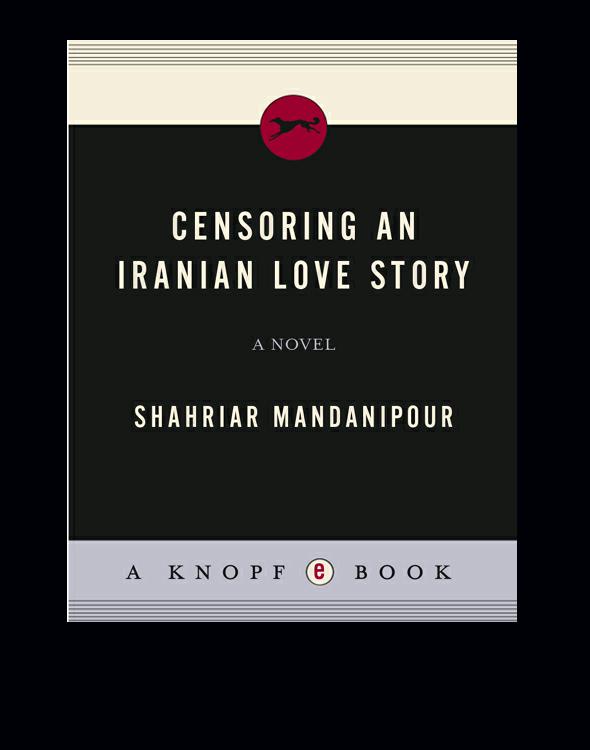
Censoring an Iranian Love Story
کتاب های مرتبط
- اطلاعات
- نقد و بررسی
- دیدگاه کاربران
نقد و بررسی

March 23, 2009
The first of Mandanipour’s novels to appear in English follows an ambitious but censored Iranian writer as he attempts to write a Nobel-caliber love story that will pass the censors’ inspection. As a professional writer, narrator Shahriar has known his censor, nicknamed Pofiry Petrovich, for long enough that he can anticipate his objections. Shahriar’s work in progress, which unfolds as a subnarrative within the novel, concerns Dara and Sara, teenagers named after prerevolutionary Iranian children’s book characters, as they explore sexual and emotional love in a nation that forbids physical or social interaction between young people of the opposite sex. As the couple’s love grows, the self-censoring writer strikes out whole passages in anticipation of his censor’s objections. All the while, the writer converses with his censor, his characters, the reader and himself to create an intriguing postmodern, multifaceted romance steeped in Iranian culture. Kudos to Khalili for a wonderfully fluid translation of an intricately layered text.

April 1, 2009
Mandanipour's first full-length work to appear in English is a postmodern novel complete with running commentary on the fictional narrative and its author's trials.
"I am an Iranian writer," the narrator informs us early on,"tired of writing dark and bitter stories, stories populated by ghosts and dead narrators with predictable endings of death and destruction." So he opts for a romance, introducing us to Sara, a student at Tehran University, and Dara, a former student who teases and intrigues her by putting dots under letters in certain books at the library (including The Little Prince and The Unbearable Lightness of Being) to spell out tentative amatory messages. Needless to say, the course of their true love does not run smoothly. Neither does the author's writing; every word must be scrutinized by a censor at the Ministry of Culture and Islamic Guidance with the vaguely menacing alias of Porfiry Petrovich ("yes, the detective in charge of solving Raskolnikov's murders"), and there's no telling what he will interpret as unacceptable or indecent. (Mandanipour was prevented from publishing his fiction in Iran from 1992 to'97.) After one particularly trying session, the narrator reports with relief that"Mr. Petrovich forgave us three breasts and two thighs." The tale of Dara and Sara lurches forward, frequently interrupted by such authorial intrusions as"now our love story is slowly approaching its first incident." Mandanipour guides the reader through this maze by having the"novel" printed in bold font and the commentary in regular font. He has even more fun by leaving in some crossed-out sentences and phrases, so we can see what he's rejecting, sometimes in deference to the censor and sometimes because they don't fit the growing love relationship. By the end of the novel Petrovich lets a few questionable scenes get by—"hoping," the author explains,"that the guilty characters will suffer such remorse, misery, and ruin that my story will at least take on a morally educational aspect."
Complex, witty, clever and entertaining.
(COPYRIGHT (2009) KIRKUS REVIEWS/NIELSEN BUSINESS MEDIA, INC. ALL RIGHTS RESERVED.)

Starred review from April 15, 2009
Sara is annoyed to note purple dots disfiguring the pages of "The Blind Owl", a classic she's picked up from a street peddler. Then she realizes it's code; the young peddler wants to meet her. Since this is Iran, post-revolution, simply saying hello has its risks, and as someone who dabbles in banned books and suspect foreign films, peddler Dara is not what anyone would consider desirable company. But they manage a fraught relationship, fueled by a love of literature and narrated by an author who tells their story but also uses it to comment on censorship in Iran and its consequences, even wittily showing readers crossed out lines and boldfacing passages that could be trouble. The result is magisterial metafiction that makes an ordinary love affair astonishing and provides a rich understanding of life under repressive Islamic rule. Iranian author Mandanipour, currently a visiting scholar at Harvard, could not publish in Iran during much of the Nineties; readers will welcome his first full-length book in English. Highly recommended. [See Prepub Alert, "LJ" 2/1/09.]Barbara Hoffert, "Library Journal"
Copyright 2009 Library Journal, LLC Used with permission.

Starred review from April 15, 2009
Imagine trying to write about romancein a society in which its a crime for a woman to walk down the street with a man who isnt a relative, and in which government censors scrutinize every line. Shahriar Mandanipour, the struggling Iranian author portrayed with mischievous wit and serious intent in this elaborately chambered double-novel by the real-life Shahriar Mandanipoura prominent, censored Iranian writerlabors anxiously over the love story of Sara and Dara under the sharp eyes of Mr. Petrovich, a censor of disturbingly omniscient powers. Sara is the book-loving daughter of cautious parents; Daras ardor for the movies has cost him jail time. Their passion is taboo, yet nothing keeps them apart, not tapped phones, nosy neighbors, or the brutal patrols for the Campaign Against Social Corruption. Poor Shahriar fumes, crossing out lines, jettisoning entire scenes, and decrying the contrast between the sensuous glory of Persias poetic tradition and the puritanical tyranny of todays Iran. From Kafkaesque bureaucracy to a blind movie censor to violent repression, Mandanipour, summoning both irony and outrage in his first novel published in English, archly illuminates the labyrinth of paradoxes entrapping the politically repressed, and celebrates the liberating powers of literature and love. A charming, canny, and rambunctious novel of courage and freedom against all odds.(Reprinted with permission of Booklist, copyright 2009, American Library Association.)

























دیدگاه کاربران